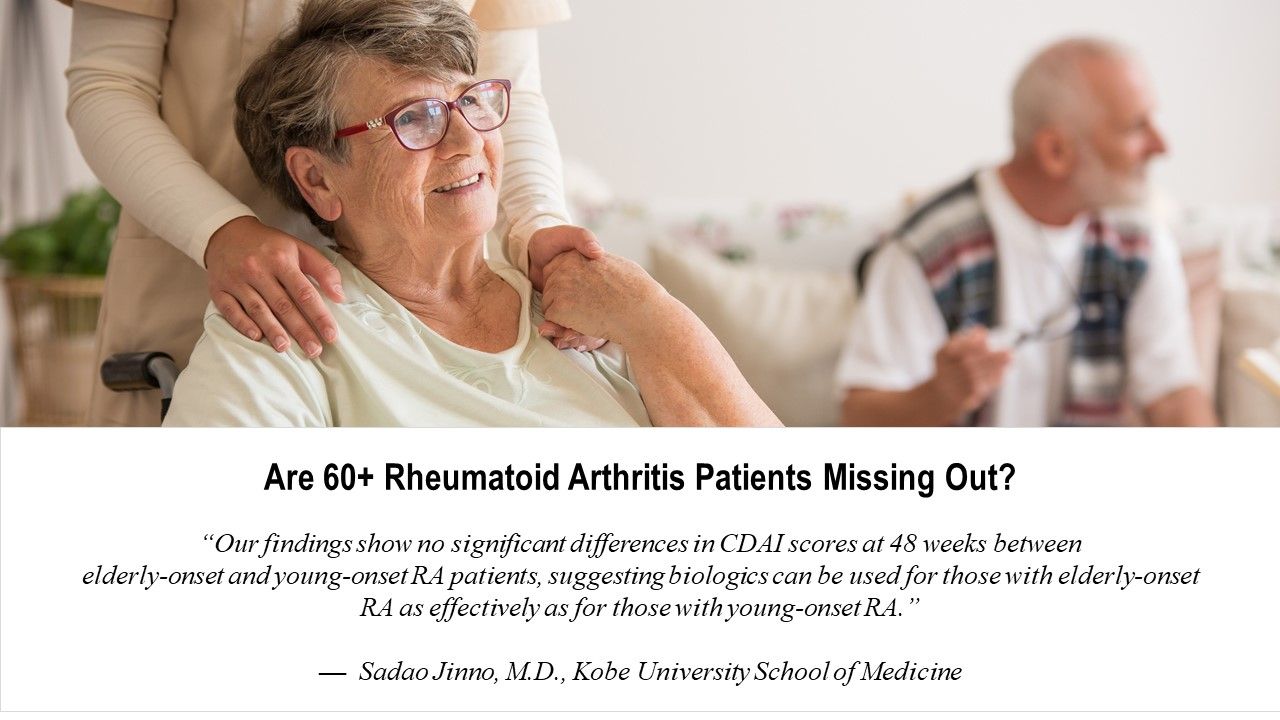Senior Rheumatoid Arthritis Patients May Be Missing Out on Treatments
Even though senior patients with rheumatoid arthritis receive biologic therapies less often than patients who develop the condition early in life, a Japanese study presented this month at the ACR annual meeting, shows that patients 60 years and older can benefit from therapy just as much as younger patients.
(©Photographee.eu,AdobeStock_277228333)

Even though senior patients with rheumatoid arthritis (RA) receive biologic therapies less often than patients who develop the condition early in life, a Japanese study presented this month at the American College of Rheumatology annual meeting, shows that patients 60 years and older can benefit from therapy just as much as younger patients.
“Patients with elderly-onset RA could present with higher disease activities and increased disabilities as compared to those with young-onset RA. Despite this, previous studies showed elderly patients receive biologics less frequently than younger individuals, suggesting patients with elderly-onset RA are potently undertreated,” Dr. Jinno said in a statement issued by ACR. “On the other hand, in our daily practice, we have seen many elderly-onset RA patients treated with biologics effectively and safely. We wanted to investigate if there are differences in efficacy and safety of biologics between the two age groups.”
This was a multicenter observational registry study that was conducted between 2009 and 2017. It included 7,183 rheumatoid arthritis patients who had at least a 3.2 DAS28-ESR score when biologic therapy commencened. The study, by Sadao Jinno, M.D., of Kobe University School of Medicine, found that of 989 rheumatoid arthritis patients, 364 (36.8 percent) were diagnosed after age 60 years, but only 18.3 percent of these patients received biologic DMARD therapy as compared to 28 percent of young onset patients. Yet, at 48 weeks, there was no significant difference in the Clinical Disease Activity Index (CDAI) score at 48 weeks (1.01, 95% CI=-0.62-2.64, p=0.22), which was the primary outcome.
Dr. Jinno found lower rates of remission in the elderly-onset group, but the low disease activity/remission rate was similar (OR=0.86, 95%CI=0.29-2.52, p=0.77). The drug maintenance rates and adverse events discontinuation rates were similar between the two groups.
“Our findings show no significant differences in Clinical Disease Activity Index scores at 48 weeks between elderly-onset and young-onset RA patients, suggesting biologics can be used for those with elderly-onset RA as effectively as for those with young-onset RA. We also found there was no difference of adverse event discontinuation rates between the two groups,” says Dr. Jinno. “Clinicians should choose wisely which patients with elderly-onset RA can be safely treated with biologics given that they are still at risk of developing adverse events, especially infections. Next, we plan to investigate if patients with elderly-onset RA respond differently to various modes of biologics.”
REFERENCE: Sadao Jinno, Akira Onishi, Kengo Akashi, et a. "Are There Differences in Efficacy and Safety of Biological Disease-modifying Antirheumatic Drugs Between Elderly-onset and Young-onset Rheumatoid Arthritis?" 2019 ACR/ARP Annual Meeting. ABSTRACT NUMBER: 1345